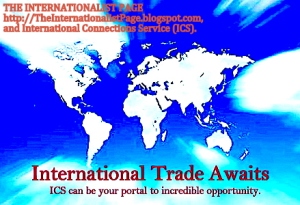It was stated in the Old Testament, purportedly by Cain to the Lord when the Lord asked Cain where his brother, Abel was. Cain answered, perhaps a bit defensively (and being evasive), "Am I my brother's keeper?" -- this was Biblespeak for "How should I know?
The situation is played out in many interactions between people where they either have an implicit responsibility for others, or when they should reasonably have knowledge about the conduct, acts and deeds of another person who may or may not be in their charge.
The European Union is very tenuously holding together at this very moment because some of the member nations have been more fiscally responsible than their weaker counterparts -- and any team is only as good as its weakest participant; the weakest participant being the area of greatest potential exposure for the team (in this case the European Union), and the part which needs to be "carried" by the strongest. If this were about romantic or poetic love, we might might be singing "He Ain't Heavy, He's My Brother". But in a situation where the group is not brought together by love, but is in fact brought together for a legitimate business purpose (i.e., bargaining strength, exchange rate controls, protection of the members from the exploits on non-members) the pointing and blaming at the errant or weaker members is not easily tolerated.
The EU is not truly a union in spirit, it is a union in form, and patriotism (even flavored with a bit of thinly-veiled xenophobia and resentment), which is normally analogous to the individual human ego, pride and spirit, becomes the seeming divider.
If we didn't assemble the team at the outset in the spirit of some higher spiritual objective than economic and political expediency, the stronger members will rapidly lose their incentive to play on the team that stands to lose -- they want to become free agents. They want to win. They entered into the "marriage of convenience" with an implicit pre-nuptual agreement packed full of conditions and escape clauses.
Patriotism is the national identity and pride of a people. It, of itself is not the underlying agent of destruction of an international group or team -- patriotism is merely the way the team members designate themselves in terms of which "member" they belong to.
The fact of the matter is that when relationships are brought together without each member seeing the benefit in being associated with each other member beyond a fairly rapid gain, there is insufficient gravity and dedication to hold the players together during difficult times for any one member as that member might inconvenience the team. As long as they are only prepared to reap the more rapid rewards but unable to truly see an advantage in helping (or perhaps carrying) the other members, the union is not truly grounded.
Patriotism is not the antithesis of the European Union -- the reason for all of its fear, splintering and insecurity....its instability...comes from the fact that it was founded as a union of convenience (i.e., a limited purpose joint venture) instead of a union where fortunes are tied together for the longer haul.
Douglas E. Castle for The Internationalist Page Blog





No comments:
Post a Comment